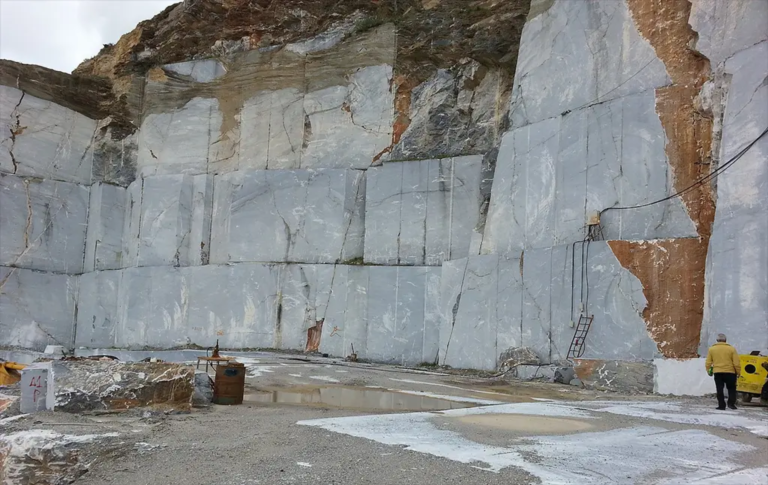What is a marble in geology ?
Marble : definition
A marble can thus alternate chemically very pure zones with calcite alone, purer than the original limestone, and zones where mineralogical impurities are concentrated, which it is sometimes possible to eliminate by an appropriate treatment.
In the ornamental rock industry, however, this definition has been extended to any limestone rock capable of taking a fine polish and of being used in ornamentation. This second acceptance has no petrographic meaning : the "marbles" are then not always metamorphic limestones.
Marble : definition
A marble can thus alternate chemically very pure zones with calcite alone, purer than the original limestone, and zones where mineralogical impurities are concentrated, which it is sometimes possible to eliminate by an appropriate treatment.
In the ornamental rock industry, however, this definition has been extended to any limestone rock capable of taking a fine polish and of being used in ornamentation. This second acceptance has no petrographic meaning : the "marbles" are then not always metamorphic limestones.

